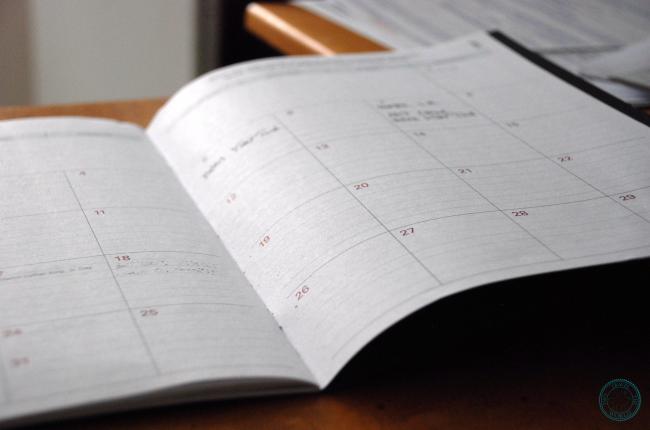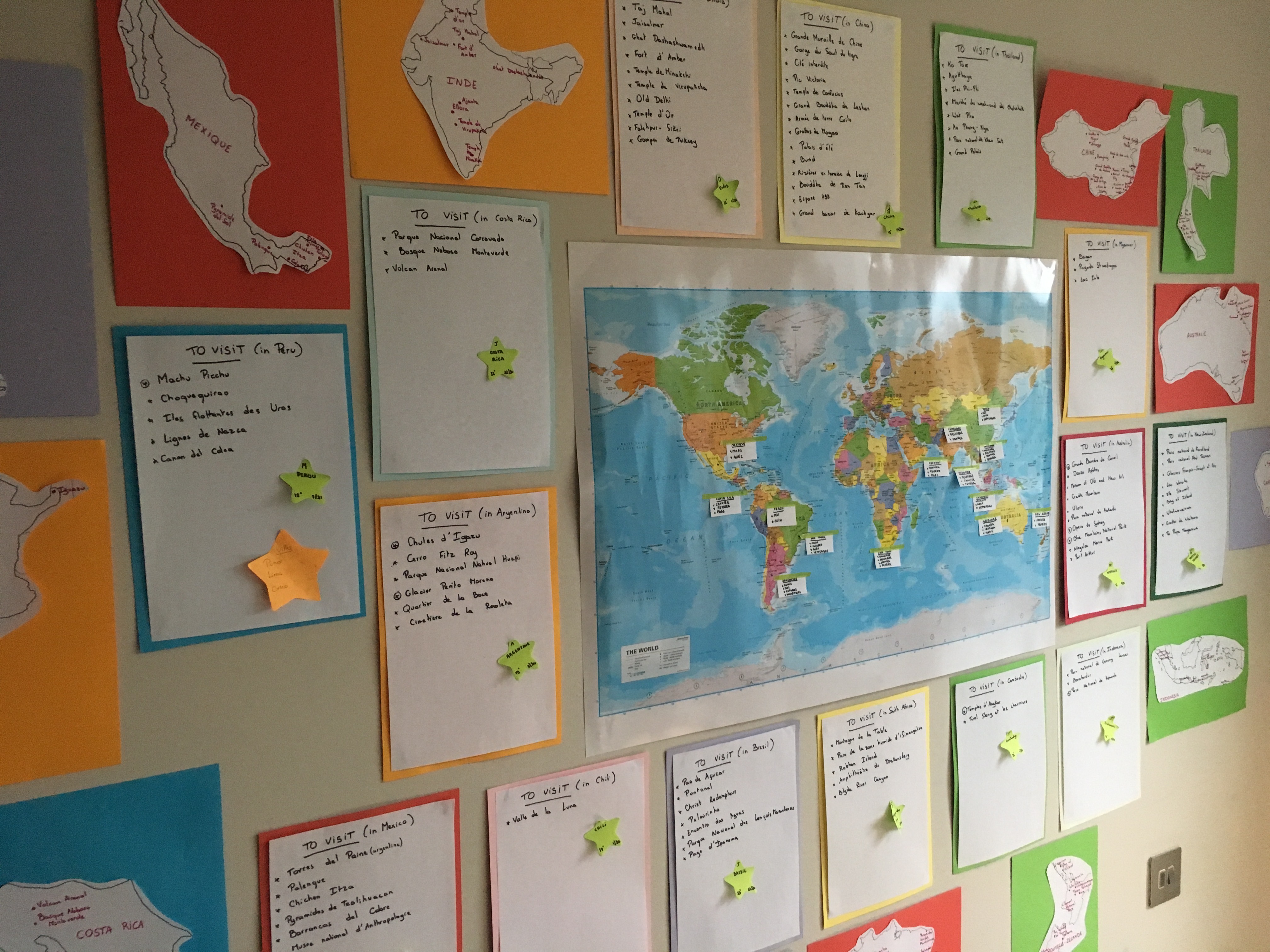
Learn a New Language
From being able to read the menu to being able to find your way, speaking a new language will add a new dimension to your trip. Even if you're not completely fluent, locals will always appreciate that you are making an effort to connect in their mother tongue. An easy and joyful way to learn a new language is to use an app like Duolingo or Memrise. Memrise is better memory- and vocabulary-wise while Duolingo is great for motivation and grammar. Check them out and ‘Usted no será decepcionado!’
Get Vaccinated
Visit your doctor as early as possible to discuss your travel plans and seek advice about which immunisations you will need. It's important to do this early because some vaccines are given as a series of shots and require a ‘minimum interval’ between doses.
Get Back into Sport
Travelling can be physically tough on your body. Lugging a heavy backpack around, fitting into budget airline seats, labouring up hundreds of stairs of the Great Wall of China, or trekking to the top of Machu Picchu are some many reasons you should lose weight, increase your muscle strength, and build up your cardiovascular endurance. Wherever you will be travelling to or whatever activities you will be doing, start your physical preparation today with regular walks, cycling, running, or even dancing!
Start Your Travel Bucket List
Map out the countries you dream of visiting and start writing down a 'must-do' list. Read guide books or blogs for inspiration. Talk to your friends or colleagues to gather precious advice. Spend your free time browsing social media sites like YouTube, Facebook, Instagram, or Twitter.

Six Months before Departure
Plan Out Your Itinerary
Slowly order the countries you want to visit based on the weather, travel costs and peak seasons. Arranging your trip with crowd control in mind will save you some bucks and make your trip more comfortable. For example, "National Day Golden Week" in China force us to leave the country earlier to avoid inflated prices and maddening crowds. The best way to avoid those inconveniences is to research intensively. Fortunately, websites like Lonely Planet, Wiki Travel, and Rough Guides will give you a good idea of when to visit your dream destinations.
Estimate the Budget
Based on the length of your trip and whether you want a premium, mid-range, or budget experience, it's important to estimate the total cost of your trip. Take into account not only the transportation, accommodation, food, tours, and sightseeing but also your pre-trip expenses like travel gear, insurance, visas, and vaccinations. Doing this early will help to plan out your itinerary.

Five Months before Departure
Start Looking for Flights
The best time to book your flights is usually six to eight weeks before departure, but it's recommended to start playing around with the airports you will fly in and out of, your travel dates, and the airlines you will trust about four months before.
Research Your Travel Routes
While you don't have to decide everything, it's important to list which experiences and cities you really want to visit during your trip. This is one of the trickiest and most time-consuming parts of the entire planning process. It's definitively not easy to link together all the destinations taking into account the seasons, the visas you will require, your flight connections, and the transportation costs. Rome2Rio is a very handy site to discover how to get from A to B worldwide by searching plane, train, bus, car, and ferry routes.
Four Months before Departure
Check Your Passport
It's time to obtain or renew your passport. Your passport needs to be valid for at least six months after the final day of travel, and it has to have enough white pages lefts for you to collect all those new stamps.
Look for Travel Gear
Even if you don't have to buy all you travel gear yet, be on the lookout for sales or bargains.
Sell Unwanted Belongings
Look around in your flat and sell all the things you haven't used for years. There are now a number of sites and apps—eBay and Gumtree, to name a couple—that can help you turn your unwanted stuff into valuable cash that will boost your travel budget.
Three Months before Departure
Buy Your Travel Gear
You don't want to wait the last minute to order your travel gear. You don't want it to be stressful if you don't receive your equipment in time. You want enough time to try out your different gear or replace them if they don't match your expectations.
Write down checklists
We love checklists. They help us keep everything on track and be confident we haven't forgotten the essentials.
Two Months before Departure
Purchase Travel Insurance
Travel insurance is a must have, whatever your plans are. Things can go wrong if you don't have the right insurance. Be sure that your travel insurance covers all your needs — activities you will be taking part in and countries you will be visiting, for example — because medical evacuation and emergency repatriation could cost you a fortune if you don't have adequate insurance coverage. We trust World Nomads as a well-established insurance for backpackers.
Redirect Your Mail
Redirect your mail to someone you trust who can open it and inform you of any important letters that have arrived by post while you are abroad. You can redirect your mail for up to 12 months for £62.99 per last name through the Post Office.
Apply for Visas
Some countries require a tourist visa before you touch down, so do your research and start applying for those visas. Be careful, though, because some visas will become valid from the moment you get them. You don't want to get these too far in advance.
Get a Health Check-Up
Book appointments with your doctor, dentist, gynaecologist, or any other health professional you need to see. Fill all of your prescriptions and obtain letters for any medication you'll be taking with you.

One Month before Departure
Try to Pack Your Backpack
Lay out everything you are taking and make sure it fill fit in your backpack. Most likely, you will need to lighten your gear. Update your packing list.
Three Weeks before Departure
Scan All Your Important Documents
Scan and copy your passport, visas, driver’s licence, travel insurance, vaccination information, and all other important documents. Store those document in the cloud and share them with someone you trust.
Inform Your Bank
More and more banks require their customers to inform them of their foreign travel plans. If you don't, the transactions that you will make overseas could be flagged as fraudulent, and your card could be blocked, leaving you with no money.
Order Some Foreign Currency
It's handy to have a small amount of foreign currency when you touch down. Exchanging money at the airport will always cost you much more, and you don't want to have to run all over to get money to pay for your first bus. We have been there! If you have friends or family joining you on your trip, ask them to bring currency for the next countries. It will allow you to carry to less cash.

Two Weeks before Departure
Have a Huge Farewell Party
Gather all your friends and family and throw a big party. It's a good opportunity to obtain everyone’s phone number, address, and email address so you can keep in touch with them while overseas.
Fill Your Backpack
Pack up for one last time before your around-the-world trip!
Eat Your Favourite Meals
You might not be able to find your favourite dishes for a while (damn, I miss Belgian fries), so use your last week to eat all your favourite foods.
